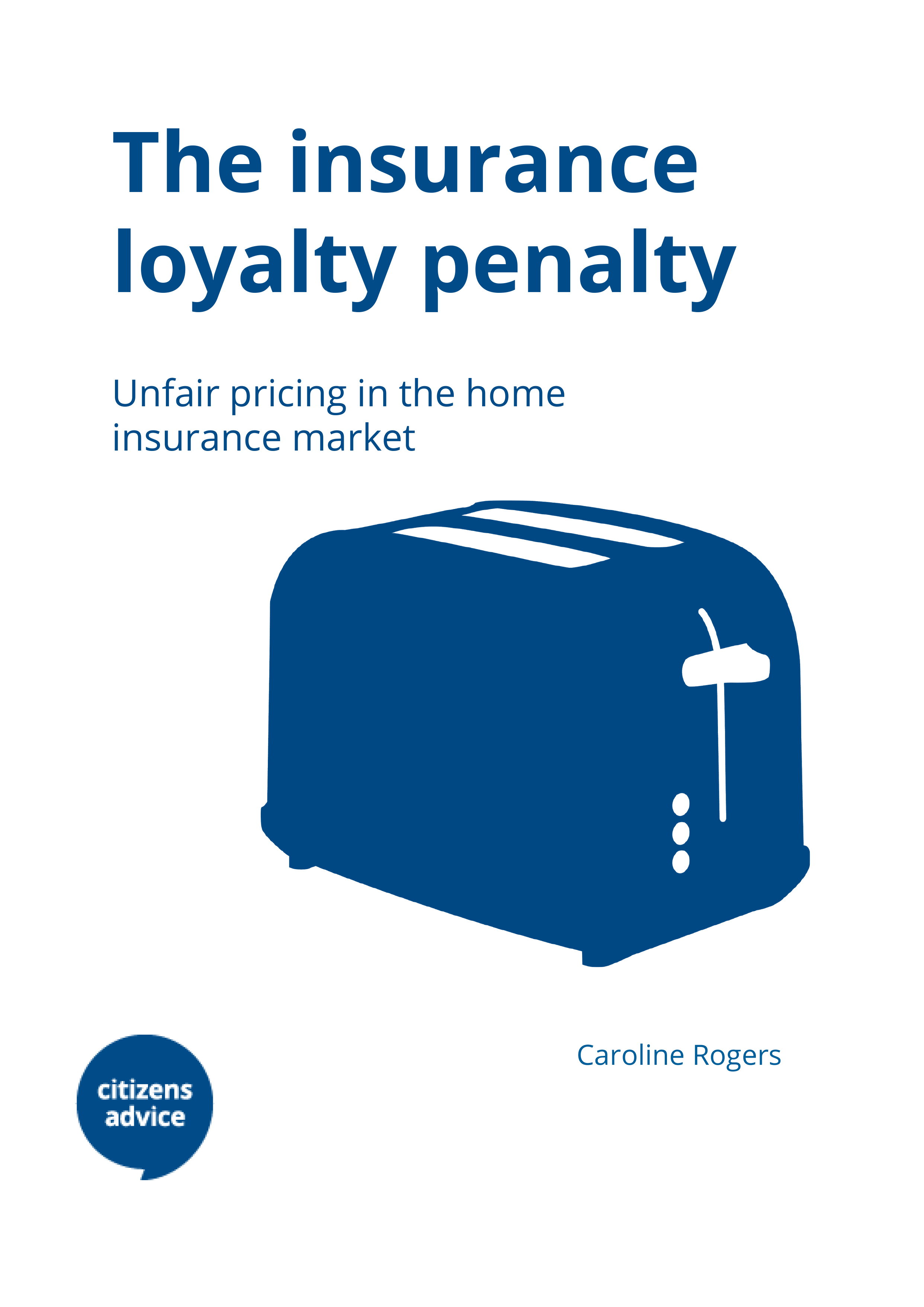The insurance loyalty penalty: unfair pricing in the home insurance market
Insurance loyalty penalty report 634 KB
Home insurance is the most common insurance product held by UK households. It helps people cope with accidents, theft and unplanned expenses. But many pay over the odds simply for renewing their policy.
In the past 12 months, Citizens Advice has supported clients with over 20,000 insurance issues. These products are confusing, shopping around is time consuming, and many don’t want to switch or renegotiate a policy that already suits their needs. But the Financial Conduct Authority (FCA) found that people who renewed their policy over 5 years paid, on average, 70% more than new customers - regardless of claims made or changes in circumstance.

This research examines this loyalty penalty and considers the impact of recent price disclosure regulations. It uses nationally representative polling, qualitative data from Citizens Advice and quantitative data from the FCA.
Across the UK, 12.9 million households could be paying a loyalty penalty - 63% of the home insurance market. Someone with the average cheapest combined policy would pay an extra £13 after 1 year and £110 after 5.
1 in 3 customers purchased their policy over 5 years ago. These people could be paying up to 70% more than a new customer.
Since new regulations came into force, people are more likely to notice price increases (24% vs 19%). But 32% of consumers still renewed their policy without checking for better deals first. And a number of firms did not fully comply with the regulations, which suggests they are not prioritising this issue.
Insurance markets are very complex. Among those who identified an unexplained increase in their premium, only 7% renewed without shopping around. But just 53% of insurance customers are confident they could identify unfair charges - so many are unlikely to act.
People in vulnerable states are particularly likely to be penalised. 32% of those paying the loyalty penalty are over 65, compared with 23% of the wider population. And those on low incomes or who are disabled are less likely to actively engage in the market when their policy renews.
Recommendations
The FCA should require firms to ensure vulnerable consumers are on good value deals.
Insurance providers should work with the FCA to improve market-wide systems for flagging vulnerability.
The FCA should regard the loyalty penalty as a breach of their regulatory principle that firms must treat customers fairly.